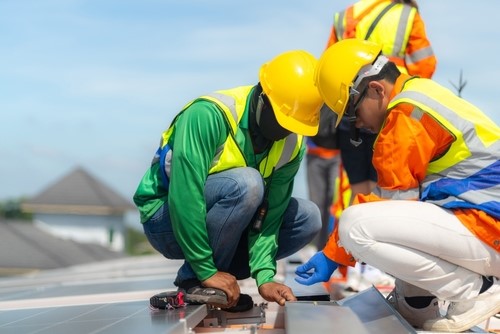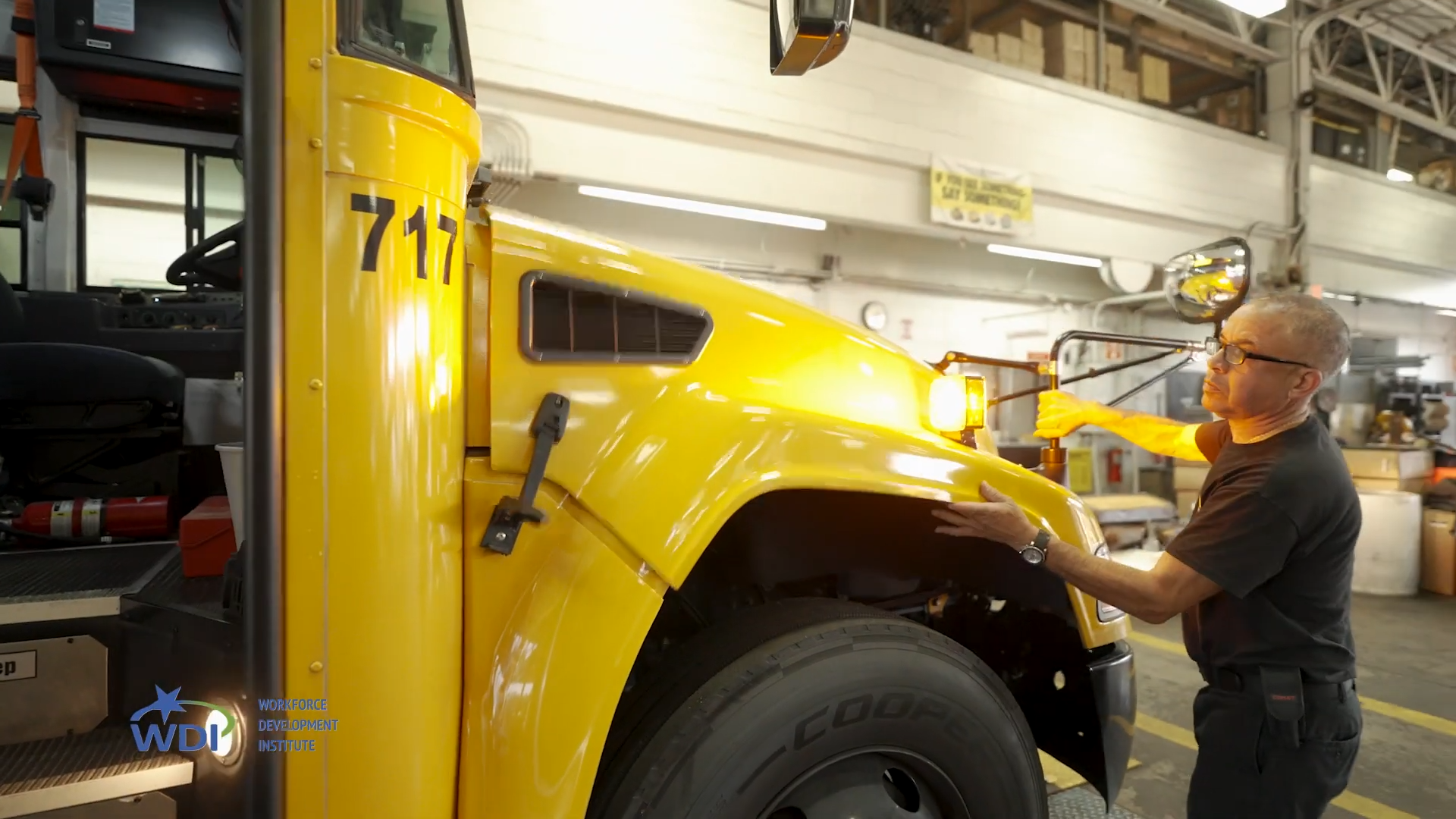ADVANCING INCLUSIVITY & HIGH-ROAD WORKFORCE DEVELOPMENT IN SUPPORT OF OUR ENERGY & CLIMATE GOALS

The energy sector is going through an exciting transition as new and emerging technologies (wind, solar, hydrogen, battery storage, and thermal energy networks, to name a few) change how we generate, transmit, and use electricity. The climate crisis is altering weather patterns in unpredictable, often harmful ways, generating workforce opportunities and demands in environmental resiliency, infrastructure upgrades, and emergency relief, to name a few.
The State of New York has big goals for restructuring its energy sector and mitigating the impacts of the climate crisis. These goals were enacted into law by the landmark legislation called the Climate Leadership and Community Protection Act (CLCPA). In addition to setting ambitious and necessary milestones for emissions and electricity generation, the CLCPA also establishes a framework for equity and inclusivity by investing in disadvantaged communities. The CLCPA is the guiding force when it comes to New York’s energy and climate initiatives. It brings with it challenges and opportunities when it comes to workforce development.
WDI’s support for energy and climate careers has been consistently driven by a dual recognition that 1) the climate crisis presents perhaps the biggest threat to New York’s workforce and 2) that its current and proposed solutions – renewable energy, environmental remediation, etc. – offer a generational opportunity to bring high-quality, family-sustaining careers to the state while advancing diversity and inclusivity in our economy.
While New York has a highly skilled and well-trained workforce, this transition introduces new knowledge and skill areas that require fresh, innovative training and education programming. The imperatives of achieving a Just Transition mean workforce and economic developers must leave no workers behind. In the coming years, tens of thousands of jobs are coming in wind, solar, energy storage, renewable heating and cooling, and many other areas of the energy sector. WDI is committed to supporting the workforce development needs of these jobs and ensuring that they offer high-road, family-sustaining careers. The scope and scale of our energy and climate challenge demand nothing less.
What Does Our Energy & Climate Program Do?

WDI staff are committed to providing New York’s workforce with the skills and supports needed to respond to a transitioning energy sector. WDI’s work in the energy sector is flexible and worker-centric. It takes many forms including research, funding, policy development, serving as a resource to others, and hands-on program development.
WDI routinely plays a role in the following energy-related areas:
- Tracking energy policy, sector trends, and emerging technologies to provide government agencies, unions, businesses, workforce development boards, and community-based organizations with information related to workforce trends and potential workforce impacts of these policies, trends, and technologies.
- Working to keep the workforce front and center as government, labor unions, and businesses make decisions in the energy sector.
- Convening workforce development experts, including labor unions, businesses, government, and not-for-profits to discuss skills gaps.
- Connecting organizations in order to address energy workforce opportunities.
- Serving as a trusted source of information about the clean energy workforce and an advisor in energy workforce program development.
- Hands-on project development work, based on region and demand.
Our collaborations have taken many forms, thanks to our partners in labor, education, business, and government:

- Researching the workforce implications of New York’s transition to zero-emissions and battery-electric school buses;
- Development of New York’s 1st supply chain database of businesses working in or capable of working in the Offshore Wind industry.
- Publishing New York State & the Jobs of Offshore Wind Energy, a report that explores the skills and occupations required to take an offshore wind power plant from an idea through development and construction to spinning turbines generating electricity;
- Providing electrical lineworkers with training on new smart grid technologies currently being adopted by utilities;
- Grant funding and support for equipment used to train electricians on installation and maintenance of electric vehicle charging stations;
- Facilitation of New York’s first wind farm technician training school;
- Development of a pre-employment training program on Long Island to help fill open positions at several utilities;
- Connection of New York’s Building and Construction Trades contractors to opportunities in renewable energy through pre-apprenticeship programs and other innovative, equity-driven models.
Interested in learning more about our energy and climate program or exploring ways we can collaborate? Please contact cleanenergy@wdiny.org.